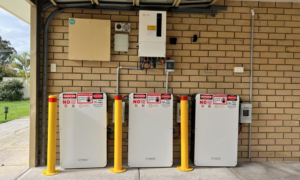According to a report commissions by WWF Australia, the nation could be transformed to run on clean energy such as wind and solar at just over half the cost the Federal Government has spent on the stimulus package in the past six months.
The report states the total investment needed over the next 40 years to roll out enough low-carbon energy generation to power Australia would be approximately AUD$28.3billion.
The report also compares the investment costs of harnessing Australia’s wind energy, bio-energy, geothermal, solar power and ocean power with the controversial process of carbon capture and storage (CCS).
For an economy powered by renewable energy, the cost will start at about $100 million per year in 2010, increasing to $1.6 billion per year in 2019 then gradually tapering zero by 2050, as economies of scale take hold. Renewable energy technologies start small and expensive, but over time they become large and cheap. However, the continuing capture and storage of carbon is likely to cost about $200 million per year in 2050.
The modelling also found that neither the Australian Federal Government’s Carbon Pollution Reduction Scheme, or its Renewable Energy Target are sufficient to meet the required investment as both schemes focus on the cost of reducing carbon emissions instead of maximising low-carbon industry development.
According to report co-author Dr Karl Mallon, Director of Corporate Analysis for Climate Risk, the fix is relatively simple – the emission trading scheme should be set at a minimum of 15 per cent below 2000 levels and the Renewable Energy Target needs to specify a large minimum contribution from each of Australia’s five major renewable resources.












































